Is the Beatles-Stones record the end of rock’s greatest rivalry?
Paul McCartney is making music with the Rolling Stones after 60 years of shared history and tension over whose band is better
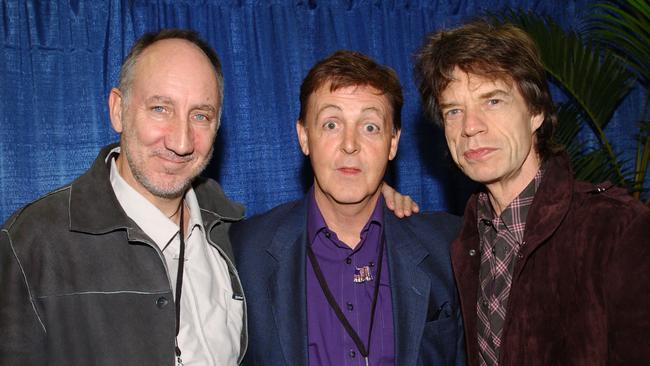
Finally, the two bands against which all others must be judged have forgotten their differences and united to form the greatest supergroup of all time. At least, that’s how it appeared when Variety magazine reported that Paul McCartney and Ringo Starr were lending their not inconsiderable skills to the forthcoming album by the Rolling Stones, due out this spring.
“Mick and Keith were working on the new album in a studio in Los Angeles and Paul McCartney was down the hall. They invited him to play bass on one track,” says a spokesman for the Rolling Stones. “He’s not singing and Ringo isn’t on it at all. The drumming is by Steve Jordan, who is also a very good producer. And there are tracks on there featuring Charlie Watts.”
Nonetheless, anything involving a Beatle and the Stones is huge news, not least because of the perceived rivalry, genuine or concocted, between the two bands.
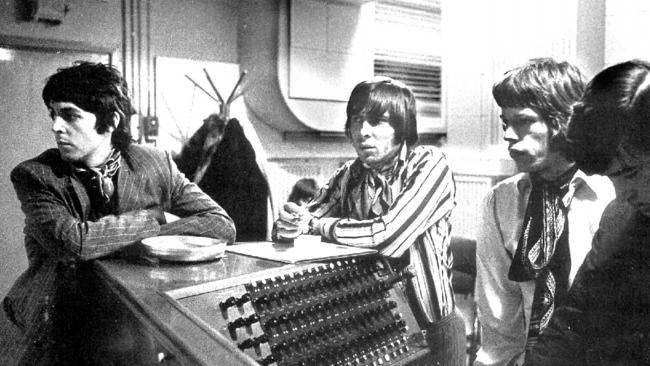
It all started when Andrew Loog Oldham, a former PR man for the Beatles who took over management of the Stones after spotting them at the Crawdaddy Club in Richmond in 1963, saw the opportunity for a badly behaved counterpart to the Fab Four’s teen appeal. Alongside coming up with the classic headline “Would you let your daughter marry a Rolling Stone?”, Loog Oldham stoked competition based on his belief that there were two types of bands: the ones you wished to share with your parents, and the ones you did not.
McCartney appeared to have taken it in the spirit of showbusiness, not least after giving the Stones the Lennon-McCartney composition I Wanna Be Your Man for their second single. With John Lennon, it was a different matter. In a famous Rolling Stone interview from 1970 he accused the Stones of stealing constantly from the Beatles. “I would just like to list what we did and what the Stones did two months after on every f...in’ album,” Lennon griped, citing the Beatles’ Sgt Pepper and All You Need Is Love against the Stones’ Their Satanic Majesties Request and We Love You as examples.
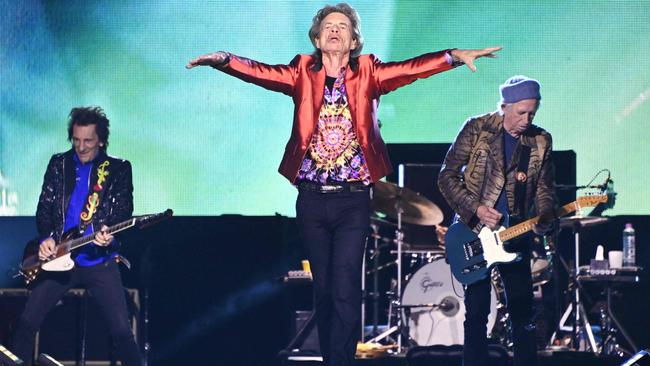
Is it really true? Did the Stones become the greatest rock’n’roll band in the world by copying the Beatles, despite the fact that the Beatles split up in 1970 and the Stones are still with us today?
Actually, the Stones got going by providing a kind of inverse image of the Beatles. The former were nice middle-class boys encouraged by their manager to act like nasty, scruffy louts – Brian Jones was from frightfully genteel Cheltenham – and the latter were tough Scousers who had been scrubbed up by their manager and turned into the loveable moptops. As Loog Oldham wrote in his memoir Stoned: “The Beatles were accepted and acceptable, they were the benchmark and had set the level of competition. The Stones came to be portrayed as dangerous, dirty and degenerate, and I encouraged my charges to be as nasty as they could be.”
Lennon was most likely envious of the Stones’ outlaw image. The Beatles had been rebels too, back in the Hamburg days before Brian Epstein got them to wear suits, be polite and do Royal Variety shows. Seeing another band get to be the cool ones must have rankled indeed. Marianne Faithfull even suggested that Lennon’s And Your Bird Can Sing was written as an attack on Jagger, but given that the song was recorded in April 1966 and she wasn’t his bird (who could sing) until later that year, it seems doubtful.

“I resent the implication that the Stones are like revolutionaries and the Beatles weren’t,” Lennon said in 1970, by then fully into revolutionary mode (and heroin addiction). “If the Stones really were, or are, then the Beatles were too. But they are not in the same class.”
No, they weren’t in the same class – because the Stones are in a class of their own. The Beatles were indeed more groundbreaking musically, embracing everything from Indian classical to musique concrete, but the Stones went further in testing the limits of freedom.
The intoxicating spirit of druggy dissolution you hear on 1972’s Exile on Main Street was a product of the life revolving around Keith Richards’ fabulously decadent Villa Nellcote in the south of France, while Jagger’s eternal search for the new thing led to the disco sleaze of 1978’s Miss You. On top of this we can never know if the Beatles were a good live band or not: most of their concerts were drowned out by screams, and the famous rooftop concert of January 30, 1969, lasted only 42 minutes before being shut down by the police.
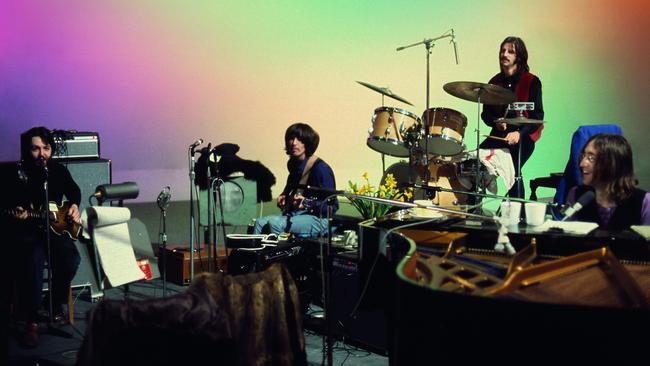
Go to see the Stones today and, even with Watts no longer with us, they remain the most exciting band you can find on a stage anywhere.
Bar the December 1968 television special The Rolling Stones Rock and Roll Circus, featuring Lennon and Richards in a one-off supergroup called the Dirty Mac, and some high harmonising from Lennon and McCartney on the Stones’ 1967 imprisonment protest single We Love You, the two bands never collaborated.
But they were in the same world, hanging out at London clubs such as the Speakeasy and the Scotch of St James, and being a part of what was, for the Sixties at least, an insular and self-contained scene.
According to Philip Norman’s biography of McCartney, the Beatle turned Jagger on to cannabis for the first time in late 1965, when they shared a joint at the top of Jane Asher’s parents’ house on Wimpole Street while McCartney’s girlfriend was off on tour with the Old Vic theatre company. Linda McCartney had a brief affair with Jagger in 1966 after photographing him for Town & Country magazine in New York, and a year later Jagger and Faithfull joined Lennon, McCartney and George Harrison on a 10-day meditation course in Bangor with the Maharishi.
The Beatles and the Stones experienced the Sixties together. Beyond that, they were faced with the reality of one band splitting up and the other continuing through thick and thin. In his 2010 memoir Life Richards describes how McCartney, whom he never knew particularly well, arrived unannounced at his home on Parrot Bay in the Turks and Caicos Islands in 2005 wanting someone to talk to in the wake of his marriage to Heather Mills looking increasingly like a serious mistake.

“Paul started to turn up every day. We talked about such strangely simple things as the difference between the Beatles and the Stones, and that the Beatles were a vocal band because they could all sing lead vocal and we were more of a musician’s band – we only had one frontman.”
It is through small revelations such as this that you realise how if you’re McCartney – or Starr, the other surviving Beatle – there are very few people who can understand what you went through. The Rolling Stones are among them. In 1967 Richards went on a three-day LSD-fuelled road trip in southern England with Lennon, on which the only cosmic revelation the experience brought was how completely overworked they were.
“So when we had three unfamiliar days off, we went a little wild,” reflects Richards, who adds that he liked Lennon but that he was “a silly sod in many ways. I used to criticise him for wearing his guitar too high. We were attracted to each other in a strange way. Definitely a two-alpha clash to start with.”
In true Keith Richards style, competitiveness with Lennon extended to drug taking. “The thing was with John – for all his vaulted bravado – he couldn’t really keep up. Couple of downers, couple of uppers, coke and smack, and then I’m going to work,” Richards writes in Life. “John would inevitably end up in my john, hugging the porcelain.”

The biggest two-alpha clash is surely between Jagger and McCartney, the men who have been left to carry the mantles of the most important bands of all time. In 2020 McCartney suggested the Stones got more credit than they deserved, stating in an interview with The New Yorker that they were “a blues cover band” and that the Beatles’ “net was cast a bit wider than theirs”.
Not one to take an insult lying down, Jagger responded with: “One band is unbelievably luckily still playing in stadiums ... the other band doesn’t exist.”
I would conclude that the Beatles were more musically expansive and adventurous, but in rock and pop it is never just about the music, and in idle moments of childlike fantasy it is the Stones I’ve always imagined hanging out with, not the Beatles.
“They, better than the Beatles ... became what rock’n’roll is today, what pop music is today,” Pete Townshend of the Who pointed out in 2001. “The Stones cemented the huge f...ing wall that we wanted to build between the previous generation and everybody who was to follow.” Now McCartney has added another brick to that wall 60 years later.
The Times




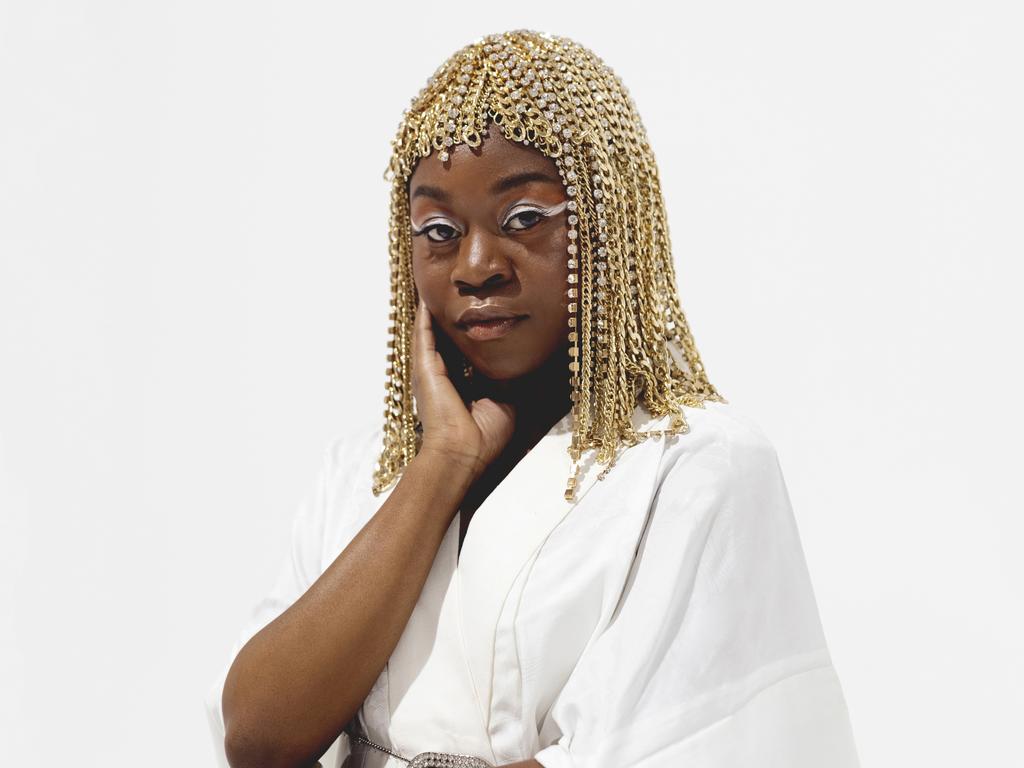
To join the conversation, please log in. Don't have an account? Register
Join the conversation, you are commenting as Logout